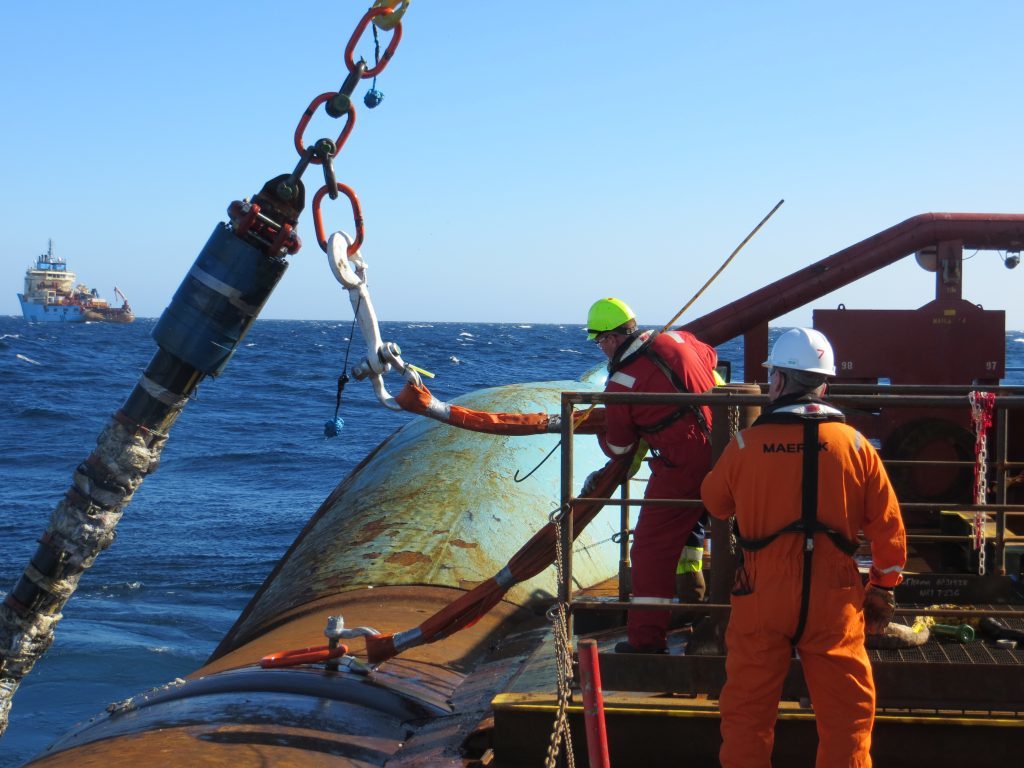
Decommissioning will be a special focus at this year’s Offshore Europe for the first time in the show’s history.
A special zone has been set up for exhibitors keen to display their services.
And this morning Andrew Jones, exchequer secretary to the Treasury will announce Scotland’s intention to carve themselves out as industry leaders in the field.
Decommissioning, which involves cleaning up and dismantling old oil rigs and pipelines, must be carried out by all operators once they have finished extracting oil and gas in the UK.
The North Sea is one of the first regions in the world to start decommissioning on such a large scale.
As oil fields mature across the glove, the minister has said there is opportunity for the country to become pioneers in this area. He believes the sector should develop this expertise and sell it to the world.
He said: “The UK oil and gas industry supports 300,000 jobs, and with up to 20billion barrels of oil yet to recover, has many productive years ahead. As the need for decommissioning grows, we must seize the opportunity to cement the UK as a world-leader in this field and export this knowledge globally.
“Efficient decommissioning means big changes to the oil and gas industry – requiring new technology, skills and innovative approaches.
“This will ensure that decommissioning is safe and cost-effective while also protecting the environment.”
Andy Samuel, chief executive of The Oil and Gas Authority, added: “Decommissioning presents great opportunities for innovation and the development of UK skills and capability.
“We are working closely with operators and service providers and are already seeing some great performance in cost efficient decommissioning, new collaborations and technology trials.
“This bodes well for the shared target of 35% cost reductions and the considerable domestic and export value that can be realised.”
The UK’s head start on cleaning up the North Sea means that 10% of old oil and gas facilities have already been removed – and in the next ten years alone, more than 100 platforms will need to be scrapped and over 1,800 oil wells plugged.
The Oil and Gas Authority (OGA) forecasts that UK oil and gas operators will spend almost £60billion on decommissioning between now and the 2050s.
They said to ensure this industry thrives, conditions must be right.
The government currently provides tax relief on decommissioning which covers around 40% of the total cost for UK companies – forecasted to be worth around £24billion between now and the 2050s.
The OGA has also pledged to reduce the overall cost by 35%. Taken together, these measures will help companies make the best of decommissioning, creating new opportunities, advancing technology and generating more jobs.
The UK has already started to see large decommissioning projects that demonstrate new ways of doing things and push technological boundaries, including Brent (Shell), Murchison (CNR) and the Southern North Sea (ConocoPhillips).
Roger Esson, chief executive of Decom North Sea said: “Operators and regulators are planning for the inescapable responsibility of decommissioning. The inaugural Decommissioning Zone Offshore Europe 2017 is an important step for the sector and wider industry to further discussions around planning, regulation, execution optimisation and technology. Its comprehensive programme of conference sessions will provide insight into the issues arising within the sector.”
Recommended for you
